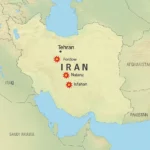Environmental and civil society groups are advocating for improved labor and environmental standards in the countries that supply critical minerals like cobalt and nickel to the United States for use in clean energy technologies; photo via pexels.com.
by Freda Ross, Producer
Friday, June 7, 2024 — A group of environmental and civil society organizations is fighting for better working conditions for people in countries that supply critical minerals to the United States.
Nickel, cobalt, lithium and other minerals are mined and shipped to the United States for use in manufacturing electric vehicles, long-storage batteries, microchips and solar panels.
Clayton Tucker, climate organizer for the nonprofit Trade Justice Education Fund, said conditions in countries where the minerals are mined do not meet U.S. standards.
“Mining cobalt, there’s artisan mines, and child slavery is very, very commonly used,” he said. “With nickel, in Indonesia to mine that you basically have to raze entire parts of the jungle and raze basically entire indigenous communities. “
Almost 219,000 electric vehicles are registered in the state of Texas, and the Department of Transportation is working on infrastructure to increase the number of charging stations across the state. Several nonprofits in Texas recently received federal grant funding to install solar panels in low-income neighborhoods, increasing the number of households using the clean energy.
Tucker and representatives from 38 other groups recently testified at a hearing with the Office of the U.S. Trade Representative, calling for more stringent requirements for future Critical Mineral Agreements between the United States and other countries.
The only CMA that currently exists is between the United States and Japan. The U.S. trade representative has said the agreement strengthens and diversifies critical minerals’ supply chains and promotes the adoption of electric vehicle battery technologies. But the environmental groups have said the agreement doesn’t go far enough to ensure that workers and the environment are protected and that it sets a concerning precedent.
Tucker said the contracts come with certain perks, and the United States needs to leverage its power “because we need these minerals.
“We’re basically trying to make sure that if you receive a subsidy, a tax credit or any form of other support,” he said, “that you play by our rules with climate protections, that you play by our rules with labor protections.”
The organizations want to be part of future CMA negotiations between the United States and other countries.
Disclosure: Trade Justice Education Fund contributes to our fund for reporting on Livable Wages/Working Families, Social Justice. If you would like to help support news in the public interest, click here.










